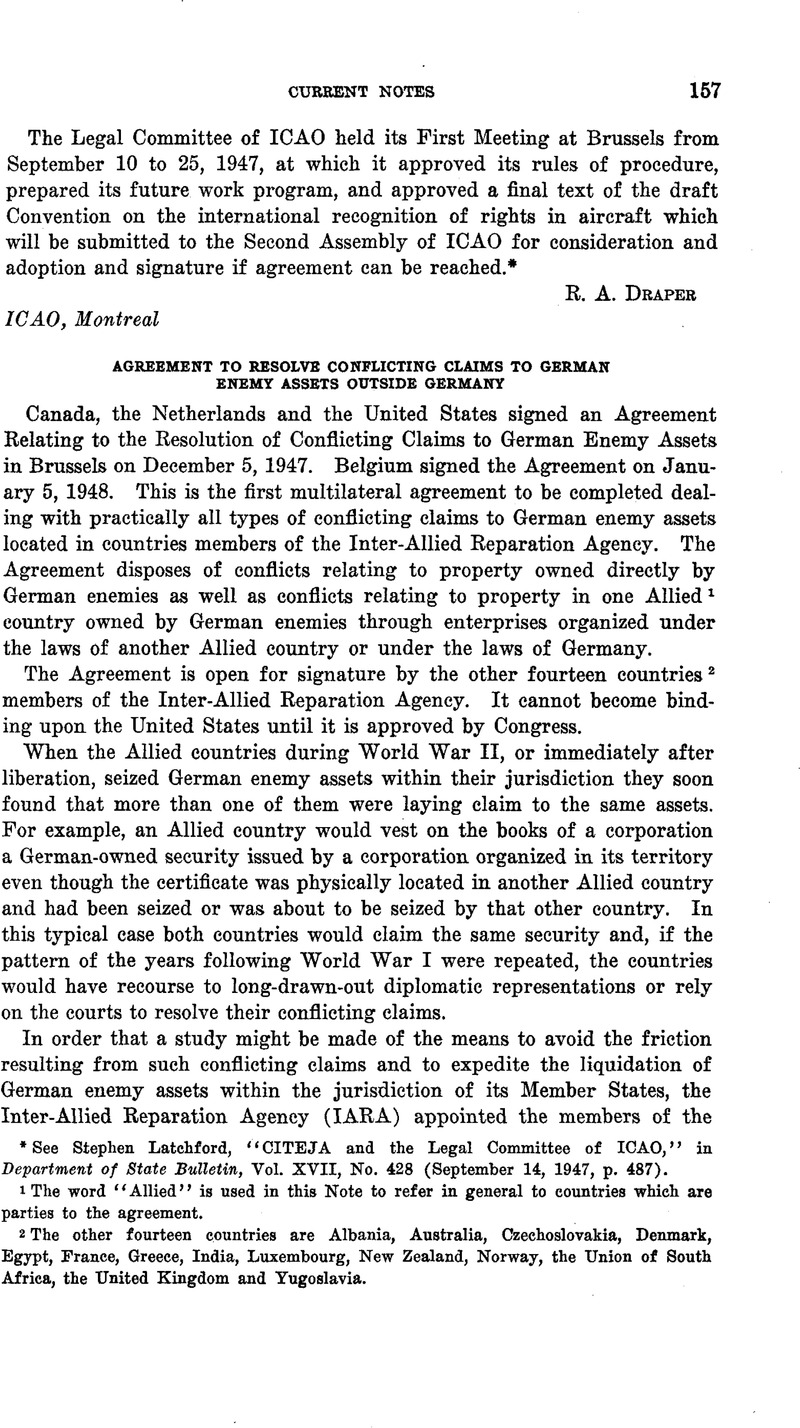No CrossRef data available.
Article contents
Agreement to Resolve Conflicting Claims to German Enemy Assets Outside Germany
Published online by Cambridge University Press: 20 April 2017
Abstract

- Type
- Current Notes
- Information
- Copyright
- Copyright © American Society of International Law 1948
References
1 The word “Allied” is used in this Note to refer in general to countries which are parties to the agreement.
2 The other fourteen countries are Albania, Australia, Czechoslovakia, Denmark, Egypt, France, Greece, India, Luxembourg, New Zealand, Norway, the Union of South Africa, the United Kingdom and Yugoslavia.
3 It is assumed that in this hypothetical case there are no creditors.
4 In an exceptional case the requisite interest may exist not in the corporation but in the property under question, as where the corporation is not German controlled but the property is German controlled.
5 In the case of dummy and closely held holding companies the country where the property is located is entitled to the portion corresponding to the German interest, however low that interest may be.
6 The country will make this reimbursement from its liquidation of the shares of the reintegrated corporation.
7 It is assumed that in this hypothetical case there are no creditors.
8 It will be noted that there is a 25 percent and control provision in Part IV while there is a 50 percent and control provision in Part III. The provision in Part IV operates to deprive Allied nationals of protection under the Agreement while that in Part III results in a shift as between custodians of different countries of the right to seize and benefit from certain German enemy assets.
9 The Netherlands and Belgium signed the Agreement sous réserve de ratification and the United States signed the Agreement “subject to approval” and subject to the reservation of one case from the Agreement.
10 Belgium 2.7 percent; Canada 3.5 percent; Netherlands 3.9 percent; United States 28.0 percent.


